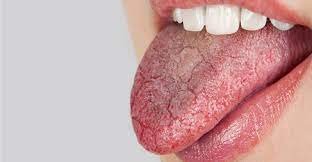
Dry mouth, also known as xerostomia , is a condition in which the mouth does not produce enough saliva. Saliva plays an important role in maintaining oral health by helping to neutralize acids, wash away food particles and bacteria, and provide enzymes that aid in digestion. When there is not enough saliva in the mouth, it can lead to a variety of problems.
The most common causes of dry mouth includes:
- Medications: Many medications, including antidepressants, antihistamines, and blood pressure medications, can cause dry mouth as a side effect.
- Medical conditions: Certain medical conditions, such as Sjogren’s syndrome, diabetes, and HIV/AIDS, can cause dry mouth.
- Age: As we age, the salivary glands may become less active, leading to dry mouth.
- Radiation therapy: Radiation therapy to the head and neck can damage the salivary glands, leading to dry mouth.
- Smoking or using tobacco products: These habits can cause dry mouth by reducing the amount of saliva produced.
- Dehydration: Not drinking enough water can cause dry mouth.
Dry mouth can cause a number of problems, including bad breath, increased risk of tooth decay and gum disease, difficulty speaking, and difficulty swallowing.
Treatment for dry mouth may include: - Drinking more water and other fluids
- Chewing sugar-free gum or sucking on sugar-free solid candy
- Using saliva substitutes or artificial saliva products
- Modifying or changing medications that are causing dry mouth
- Treating underlying medical conditions
It’s important to see a dentist or physician if you suspect you have dry mouth, as it can lead to serious oral health problems if left untreated.
